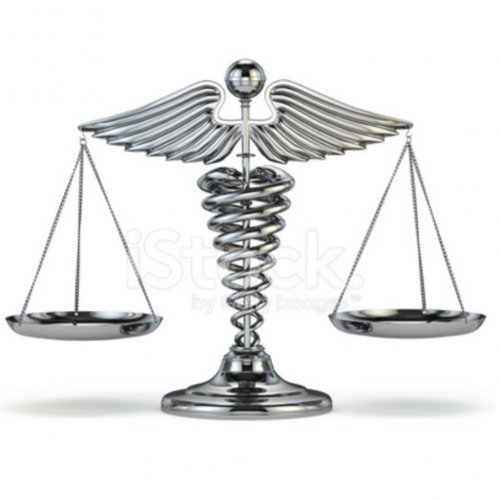Best Banking & Finance Lawyers in N'Djamena
Share your needs with us, get contacted by law firms.
Free. Takes 2 min.
List of the best lawyers in N'Djamena, Chad
About Banking & Finance Law in N'Djamena, Chad
Banking & Finance law in N'Djamena, Chad, plays a crucial role in the economic landscape of the country. It governs how banks and other financial institutions operate, ensuring compliance with regulations aimed at maintaining financial stability and protecting consumers. In N'Djamena, the national and regional regulations are influenced by both domestic policies and regional agreements within the Central African region, given Chad's membership in organizations like the Central African Economic and Monetary Community (CEMAC).
Why You May Need a Lawyer
There are several situations in which individuals and businesses may require legal assistance in the Banking & Finance sector:
- Setting up a business requiring bank financing or financial products.
- Navigating disputes over loan agreements or financial contracts.
- Ensuring compliance with local and regional banking regulations.
- Assisting investors with understanding investment regulations and securities law.
- Handling issues related to bankruptcy or financial restructuring.
- Addressing international financial transactions and cross-border financial services.
Local Laws Overview
Banking & Finance in N'Djamena, Chad, is primarily governed by the regulations set forth by CEMAC, which standardizes practices across member states. Key aspects include:
- CEMAC Regulations: Encompassing financial supervision and prudential regulation to ensure banking system stability.
- Banking Law: Establishes requirements for bank operations, licensing, and organizational structure requirements.
- Foreign Exchange Controls: Managing the exchange of currency to protect the local economy.
- Investment Guidelines: Governing domestic and foreign investment and protecting shareholders and investors.
- Consumer Protection Laws: Ensuring fair treatment in financial services.
Frequently Asked Questions
What is the role of the Bank of Central African States (BEAC) in Chad?
BEAC serves as the central bank for the CEMAC region, including Chad, and is responsible for monetary policy, currency issuance, and financial stability.
Can foreign banks operate in Chad?
Yes, foreign banks can operate in Chad provided they comply with CEMAC regulations and obtain the necessary licenses from local authorities.
What protections are in place for bank customers?
Chad has consumer protection laws that require transparency from financial institutions, ensuring fair lending practices and protecting customers from unfair banking practices.
How are interest rates regulated?
Interest rates in Chad are generally influenced by monetary policies set by BEAC, which seeks to control inflation and ensure economic stability.
What happens if a financial dispute arises?
Disputes can be resolved through negotiation, arbitration, or litigation in local courts, with legal representation often recommended.
Are there specific laws governing microfinance institutions?
Yes, microfinance institutions in Chad are governed by regional regulations that aim to support financial inclusion while ensuring their proper assessment and supervision.
What is required to obtain a loan in Chad?
Applicants must provide documentation such as identification, proof of income, and sometimes collateral, depending on the loan amount and purpose.
How can I ensure compliance with local banking laws?
Consulting with a legal expert or a compliance officer who understands the complex regulatory landscape is advisable to ensure full compliance.
What are the restrictions on international money transfers?
Restrictions are largely governed by foreign exchange control regulations, which may require approvals for significant transactions abroad.
Can individuals invest in local securities?
Yes, individuals can invest in local securities, though it's essential to follow the regulations set by the CEMAC and understand the risks involved.
Additional Resources
For more information and assistance, the following resources can be helpful:
- Bank of Central African States (BEAC): Offers information on regional monetary policy and financial guidelines.
- Ministry of Finance and Budget of Chad: Provides guidelines on national economic policies and fiscal regulations.
- Chamber of Commerce, Industry, Agriculture, Mines, and Handicrafts (CCIAM) of Chad: Supports businesses with resources and networking opportunities.
- Local law firms specializing in Banking & Finance: Offer expert legal advice tailored to your specific needs.
Next Steps
If you require legal assistance in Banking & Finance in N'Djamena, consider the following steps:
- Identify your specific needs and challenges within the Banking & Finance sector.
- Reach out to legal professionals or firms specializing in Banking & Finance law.
- Consult with advisors to understand your legal obligations and rights.
- Consider attending financial law seminars or workshops for a deeper understanding of the current legal landscape.
- Maintain open communication with financial institutions to ensure clarity and compliance in all financial transactions.
Lawzana helps you find the best lawyers and law firms in N'Djamena through a curated and pre-screened list of qualified legal professionals. Our platform offers rankings and detailed profiles of attorneys and law firms, allowing you to compare based on practice areas, including Banking & Finance, experience, and client feedback.
Each profile includes a description of the firm's areas of practice, client reviews, team members and partners, year of establishment, spoken languages, office locations, contact information, social media presence, and any published articles or resources. Most firms on our platform speak English and are experienced in both local and international legal matters.
Get a quote from top-rated law firms in N'Djamena, Chad — quickly, securely, and without unnecessary hassle.
Disclaimer:
The information provided on this page is for general informational purposes only and does not constitute legal advice. While we strive to ensure the accuracy and relevance of the content, legal information may change over time, and interpretations of the law can vary. You should always consult with a qualified legal professional for advice specific to your situation.
We disclaim all liability for actions taken or not taken based on the content of this page. If you believe any information is incorrect or outdated, please contact us, and we will review and update it where appropriate.
Browse banking & finance law firms by service in N'Djamena, Chad
N'Djamena, Chad Attorneys in related practice areas.








